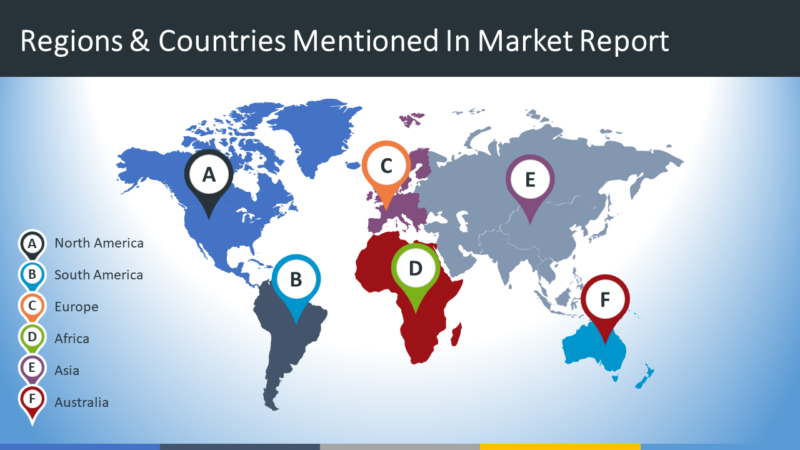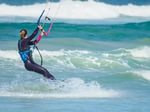Advertisement

By Chris Museler
Olympic sailing had a problem — and a deadline.
It took nearly a century for sailing to hold an Olympic event for women. At the 1988 Games in Seoul, an American pair walked away with the first women’s sailing gold medal, in the double-handed 470 class. In the years since, sailing has continued to lag behind most other sports at the Games in gender parity.
Pressured by mandates from the International Olympic Committee to have an equal number of male and female athletes at the 2020 Tokyo Games, World Sailing added more roster spots in women’s events to reach that goal. And then the organization voted last fall for full gender equity — in the number of athletes and the number of medals — for the 2024 Olympics in Paris.
Sailing, which in 2020 will award two more medals to men than women, attained equity for 2024 in part by adding races that had not been part of the sport before: a mixed two-person offshore race and a mixed kiteboarding relay.
“If you want to be relevant in the future, you have to get the gender balances right,” Kim Andersen, World Sailing’s president, said in November. “In sailing we have to be interesting to youth and bring up the level of mixed sport.”
In addition to gender equality, the I.O.C.’s Agenda 2020 included initiatives for sustainability and universality, asking sports to increase their broadcast appeal with new formats and technology.
The World Sailing Annual Conference in November voted to make four of 10 sailing events at the 2024 Paris Olympics for mixed teams. The 2024 program also will include three all-women’s and three all-men’s races, the same as in 2020.
With only five years until the Paris Games and new medals at stake, national governing bodies have mobilized to form teams. Britain conducted a talent search for kiteboarders last winter and received 121 submissions. A national squad has been training in Mexico, and it has already delivered strong performances, including a bronze medal in the under-16 division, at the Kitefoil Gold Cup World Series in late July.

“The U.K. brought a big squad with a lot of kids,” said Mirco Babini, the president of the International Kiteboarding Association. “It was amazing to see the level of their performance.”
Though kiteboarding will be new to the Games in 2024, it is a popular, decidedly young and global sport with a professional series. It uses a parasail-type kite to pull riders on small boards and hydrofoils across the surface of the water; riders can exceed 30 miles per hour.
Professional sailing stars have been dipping into the new formats. In May, the American kiteboarding champion Daniela Moroz won the first mixed relay test event with Evan Heffernan at the Formula Kiteboarding World Championships in Lake Garda, Italy.
“Men and women have different mentalities about their sports,” Moroz said. “Having them work together is going to be really interesting and cool.”
Babini said different relay formats would be tested at the European kiteboarding championships in September.
Even more bold than the addition of mixed kiteboarding is the mixed offshore event, a two-person distance race in small keelboats. Sailing’s version of the marathon, the three-day endurance race will be the first of its kind in Olympic competition and the longest event at the Games.
The offshore event will meet two of the I.O.C.’s goals for 2020: increased broadcast appeal and gender equality. The teams will be filmed by autonomous onboard cameras over the three days along the coast of the host country, a coverage technique similar to those used at marquee professional ocean races like the Vendée Globe and the Volvo Ocean Race. The offshore event would allow live coverage in any time zone.
A new event, the Sardinha Cup, was created, in part, to promote the new discipline of mixed offshore sailing. The event, held for the first time in April in Brittany, France, largely featured all-male teams, but it was won by a mixed team, Samantha Davies of Britain and Yann Eliès of France. Both are better known as solo sailors.
Disciplines like mixed offshore sailing are an opportunity, sailing officials said, for the sport to reach a broader audience and attract popular professional sailors.
“We have a lot of professional sailing stars around the world who want to race in the Olympics,” said Nicolas Hénard, president of the French Sailing Federation and a two-time Olympic gold medalist. “With these stars we will get broadcasting.”
France, a powerhouse in solo ocean sailing, organized offshore training camps in the spring for mixed teams, and it also has looked at updating policies to attract more female sailors.
“In our sport you can be an Olympic champion a bit late, at 30 or 35,” said Guillaume Chiellino, the former director of the French sailing team. “For women, sometimes that is the moment to have children. We want to take that into account and help them to be a mother and have an Olympic career.”
One such competitor, Charline Picon, won a windsurfing gold for France at the Rio Games nine months after having a baby. The team allowed her to stay outside the athletes’ village, and her family helped take care of the child. Chiellino said French sailors’ children would soon be able to use team doctors and physiotherapists. He said he also was seeking money to provide nannies for athletes with children.
According to the I.O.C., projections show just under 50 percent female representation for the Tokyo Olympics, with about a third of the sports not achieving equal participation.
The I.O.C. has encouraged sports to add mixed events to fulfill gender equality goals.
Sailing had its first mixed event at the Rio de Janeiro Games in 2016, with a two-person crew on the Nacra 17 catamaran, the fastest class at the Olympic regatta.
There were nine mixed events over all in Rio; there will be 18 in Tokyo, including mixed-team triathlon and mixed-doubles table tennis.
The World Sailing vote for the 2024 program was contentious. Some council members argued against new events that required the elimination of classes like the men’s Finn dinghy, which had been sailed in every Games since 1952.
This shift in Olympic sailing has parallels to changes in the Winter Olympics, such as when the International Ski Federation added snowboarding in 1998.
“The system is built for inertia,” Luke Bodensteiner, chief of sport at U.S. Ski and Snowboard, said about new event selection. “Government-funded programs incentivize people to protect disciplines that sometimes don’t make sense.”
Since 1998, no Olympic skiing events have been eliminated to make room for new disciplines, a factor that has helped snowboarding expand. For less popular sports like sailing, the I.O.C. often allows new events only on a one-in, one-out basis.
Still, Andersen, the World Sailing president, said he saw the I.O.C. agenda as an opportunity to update his sport.
“If we need to change Olympic disciplines to push gender equality down through our sport,” he said, “then why not?”





Recent Comments